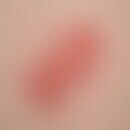Synonym(s)
Butylhydroxitoluene; CAS No. 128-37-0; E321; INCI designation: BHT
DefinitionThis section has been translated automatically.
Food additive; antioxidant in cosmetics (see BHT below), topical medicines, in food (E321), in plastic and rubber products.
Undesirable effectsThis section has been translated automatically.
Butylhydroxytoluene is mainly added to cereals and cereal products. Isolated contact allergic reactions, chronic urticaria and contact urticaria have been described. For a provocation test, doses of 100 mg are recommended (Jaeger L et al. 2002).
LiteratureThis section has been translated automatically.
- Goodman DL et al (1990) Chronic urticaria exacerbated by the antioxidant food preservatives, butylated hydroxyanisole (BHA) and butylated hydroxytoluene (BHT). J Allergy Clin Immunol 86:570-575.
- Hannuksela M et al,(1986) Peroral challenge tests with food additives in urticaria and atopic dermatitis. Int J Dermatol 25:178-180.
Jaeger L (2002) Food allergens. In: L. Jaeger B Wüthrich (eds.) Food allergies and intolerances. Urban&Fischer Munich Jena 2002
- Le Coz CJ et al (1998) Contact dermatitis from tertiary-butylhydroquinone in a hair dye, with cross-sensitivity to BHA and BHT. Contact dermatitis 39:39-40
- Simon RA (1995) Food and Drug additives. Immunol. All Clin N America 15: 489-527




